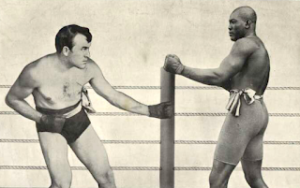Most managers learned about basic goal setting theory during their university studies or at corporate leadership training programs. Some even remember what the letters in the SMART acronym stand for, and try to take into account some of those attributes. As a matter of fact, it is not so difficult to be a bit more specific when setting a goal. Measurement can often just be completed/not completed when you cannot use numerical measures, and it is also rather easy to stick a deadline at the end of the sentence. This is not the tricky part. The remaining two letters very frequently prove to be the reason for goal setting and attainment failures.
In my experience, both as a leadership development professional and as an individual, we often underestimate the time a certain project requires. We tend to consider an ideal situation, which is basically never the case. Firstly, there are several other commitments, projects and regular responsibilities that use up our time that we systematically ignore when setting a deadline. Secondly, goals are very often contingent upon the input or cooperation of other people, again with a multitude of commitments and responsibilities. Very few projects get completed on time with the originally imagined scope. If you want more success with your goals, it makes sense to plan for shorter time periods with specific actions that you either control or can effectively influence, and reiterate later to proceed toward a longer term direction.
The other issue is with the “relevant” part, i.e. the motivation or fuel to diligently work on a specific goal that we set. If people do not understand how their own goal fits into the big picture, how they personally contribute to a meaningful outcome, there will simply not be enough drive to invest sufficient amount of energy in the project or issue. If at the end of a goal setting discussion, the manager or the team member is not clear about why it makes a lot of sense to engage in that activity, if either of them cannot see how the goal will add to better business performance and/or personal growth in an important area for the individual and the company, the goal should just be deleted from the document. Otherwise, it will only bring disappointment.
If you have read the article this long, I would like to give you an extra reason behind people not achieving whatever they set out to do: lack of regular follow-up. No matter if it is a work goal or a personal development one, we should review progress at least once a month. On one hand, it is highly motivating to see that we made significant steps forward, also an excellent way to refuel. On the other hand, these pitstops allow us to recalculate our route and make alterations as necessary.
Act2Manage Application
An interactive, gamification-based, practice-oriented leadership development application that provides immediate help and enables follow-up to the most common dilemmas.






